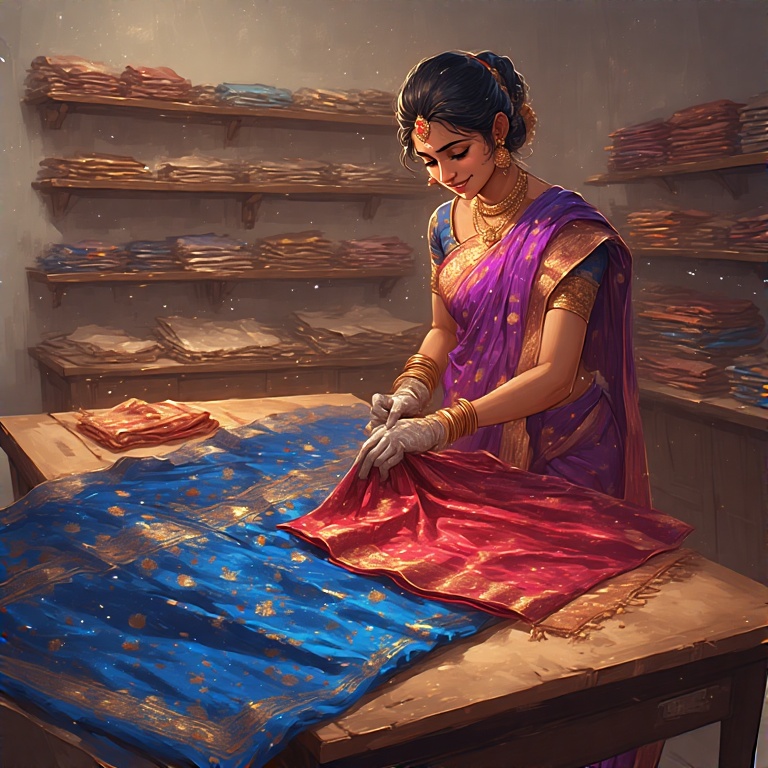When it comes to caring for your clothes, knowing how to properly clean different fabrics is key to maintaining their look, feel, and lifespan. While many garments can be tossed into a regular washing machine, others require a gentler, more specialized approach — and that’s where dry cleaning comes in. Understanding which fabrics should always be dry cleaned can save your wardrobe from unwanted damage and help your clothes last longer.
Why Some Fabrics Require Dry Cleaning
Dry cleaning is a cleaning process that uses solvents instead of water to clean clothes. This method is ideal for delicate fabrics that might shrink, distort, or lose color when exposed to water or machine agitation. Fabrics like silk, wool, and certain synthetics respond better to dry cleaning because it protects their fibers while still removing dirt, oil, and stains effectively.
1. Silk
Silk is a luxurious and delicate fabric known for its smooth texture and beautiful sheen. However, it’s also incredibly fragile. Washing silk in water can cause it to shrink, lose color, or develop water spots. Additionally, the agitation from a washing machine can break down the natural fibers, making the fabric appear dull and lifeless. Dry cleaning is the safest way to preserve the vibrant colors and delicate structure of silk garments like blouses, ties, and dresses.
2. Wool
Wool is another fabric that should typically be dry cleaned. Though some wool items may be labeled “hand wash only,” using water — even cold — can cause shrinkage and warping. Wool has natural oils that help maintain its structure and softness, and dry cleaning helps preserve these oils. This is especially important for structured wool garments like suits, coats, and trousers.
3. Cashmere
Cashmere, a soft and luxurious type of wool, is extremely sensitive to washing. Even gentle hand washing can lead to pilling, stretching, or shrinkage. Because cashmere garments are often investment pieces, dry cleaning is the safest way to retain their softness and shape. Regular cleaning also helps remove body oils and deodorants that can weaken the fibers over time.
4. Suede and Leather
Suede and leather require very specific care and should never be machine-washed. These materials are sensitive to water and can easily stain, stiffen, or lose their texture when exposed to moisture. Dry cleaners that specialize in leather and suede use specialized solvents and equipment to clean and condition these items without damaging them. Jackets, skirts, and even accessories like leather bags should always be professionally cleaned.
5. Rayon
Rayon is a semi-synthetic fabric made from natural cellulose fibers. Although it may feel like cotton or silk, rayon is very prone to shrinking, stretching, and bleeding when washed in water. It becomes even more delicate when wet, which makes handling it a challenge. Dry cleaning helps maintain its shape, size, and color, especially for dresses, skirts, and lightweight tops.
6. Linen (in Certain Cases)
Linen is generally more durable than some of the other fabrics mentioned, and some linen garments can be washed at home. However, high-end or structured linen clothing — such as suits or lined garments — should be dry cleaned. Washing them at home can cause the fabric to wrinkle excessively or lose its crisp shape.
7. Embellished or Beaded Garments
Clothing with beading, sequins, embroidery, or other delicate embellishments should be dry cleaned, especially if these decorations are glued or loosely stitched. Machine washing can cause beads to fall off or stitching to unravel. Professional cleaners know how to protect these details while still effectively cleaning the fabric.
8. Formal and Evening Wear
Even if a garment is made from a wash-safe fabric, formal wear usually involves complex designs, linings, or trims that aren’t water-friendly. Dresses, tuxedos, gowns, and suits should be dry cleaned to maintain their appearance. Dry cleaning also helps preserve pleats, tailoring, and fabric textures that might get damaged in a home wash.
Don’t Forget to Check the Label
One of the easiest ways to determine if a garment should be dry cleaned is to check the care label. Manufacturers often indicate whether an item should be dry cleaned only, hand washed, or machine washed. However, if you’re unsure or the fabric feels delicate, it’s safer to opt for dry cleaning.
Conclusion
Proper care of your clothing is essential if you want to keep them looking sharp and lasting longer. While some items can be easily handled at home, others demand the gentle care of dry cleaning. Fabrics like silk, wool, cashmere, suede, rayon, and embellished garments are particularly vulnerable to water damage and rough handling. By choosing dry cleaning for these delicate items, you’re not just cleaning them — you’re preserving them.
Whether it’s your go-to office blazer, a party dress, or a cherished silk scarf, entrusting them to a professional dry cleaner can make all the difference in how they look and feel over time.

